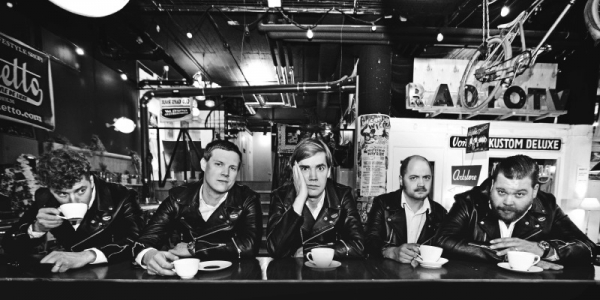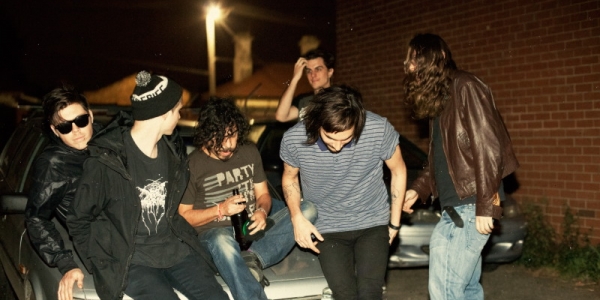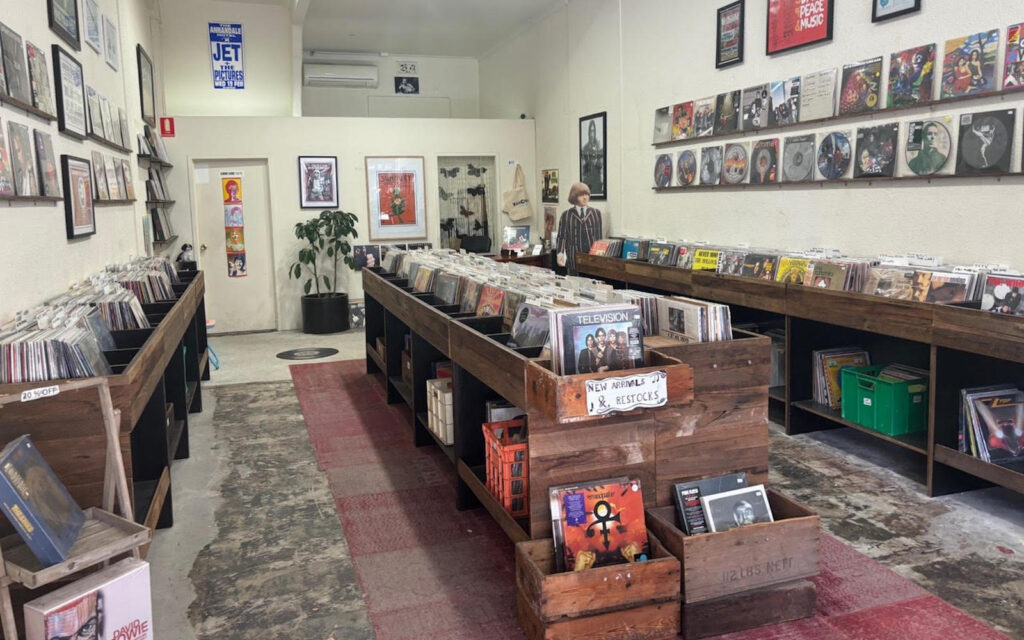Apart from the five years between this release and its predecessor The Black and White Album, what’s different about Lex Hives is the band’s slight sonic mutations – eschewing their fuzzy garage clatter for some shiny power pop fare. So the band sounds slightly like Mott The Hoople, and then I’m forced to listen to hold music that sounds slightly like Mott The Hoople. Don’t you see what’s happening?! Or maybe it is a coincidence and I should leave the conspiracy theories for the tin hat people. Meh.
But at least I’m confident in the connection between Lex Hives and its power pop leanings. No conspiracy theories there, as Nicholaus acknowledges the album’s influences, but suggests that the ‘70s neon swagger has always bubbled away just beneath the band’s surface.
“Yeah, we’ve always liked bands like Cheap Trick, Mott The Hoople and Electric Light Orchestra, along with the heavier rock‘n’roll things that people associate with our sound,” says Arson. “With Lex Hives, some of the songs are more poppy tunes, and there are others that sound like old Hives.
“So a song like My Time Is Coming, that was basically written like a punk song, but then something like Wait A Minute is more like Cheap Trick. When we put out a record, we just play songs we like.”
I point to one song in particular from Lex Hives – Go Right Ahead – that is actually co-credited to Electric Light Orchestra’s bandleader Jeff Lynne, for its similarities to ELO’s Don’t Bring Me Down. As lifted hooks go, it’s not the most flagrant example in rock‘n’roll songwriting, but it was wise to ask for permission first as opposed to waiting for the lawsuit to land. Just ask Noel Gallagher.
“We didn’t actually think about it until the song was done, then we went, ‘Yeah, yeah, it’s pretty similar’,” explains Arson with a laugh. “We could have tried to change chords and meleodies, but we really liked the song so we just ended up sharing the song with Lynne.”
The tale of The Hives is by now well-known, bursting out of the small Swedish town of Fagersta at the start of the 21st Century. Releases like 2004’s Tyrannosaurus Hives rode the ‘new rock’ wave with the likes of The White Stripes and The Strokes, but by that time they were already ten-year veterans of playing in Sweden. Unlike a lot of the bands from that era that burned briefly before fading away, a decade of gang-like camaraderie, experience and trying to crack into the mainstream surely put them in good stead. The Hives have outlived most, if not all, of their contemporaries. The band as a live spectacle onstage continues to be a major drawcard, a force of nature that is difficult to explain and even harder to bottle.
“I’m not even sure if it can be accurately captured…the difference between The Hives live and The Hives on record would be kind of like watching internet porn and having great sex in real life,” Arson says slyly. “It’s like they’re both pretty good, but for different reasons.
“You can try and capture it on film, but it would be kind of hard – you can’t include the sweat and the crowds. The bands I remember seeing when I was really young, they stick in my mind because they were so over the top, and that’s what we try to do. And as [lead singer and brother] Pelle and I got older, we would see more shows. There were no big American acts, but we would take everything. If there was a blues show, we’d go and see that, or a rock show, and we’d derive whatever we could. And that’s a personal experience that’s difficult to replicate with an album or a DVD.”
Difficult, perhaps. But that doesn’t sound like it will stop The Hives from trying. “We were planning on recording a live album for this tour, but we would just run out of time,” Nicholaus explains. Lex Hives is the band’s first self-produced, self-funded and self-released album, having separated from Interscope after The Black and White Album. Arson offers that “it was pretty hard to find time to do everything” with the increase in responsibilities. “But we are also planning on doing something next year – because that will be our 20th anniversary – so maybe we can play a bunch of live shows and pick out the best songs and end up with a greatest hits live album.”
The Hives will return to Australia in the dying days of 2012, clutching a cracking new album underarm, their drawcard status at this year’s Falls Festival almost guaranteed. There are big plans afoot for 2013 as they celebrate their second decade together. While contemporaries fracture into side projects, forced eclecticism and general ambivalence, the thundering prehistoric sounds of The Hives roar out – stronger, louder and with bigger hooks than ever before.
BY MITCHELL ALEXANDER







